The Urban Developer Awards for Industry Excellence Winners Revealed

The winners of The Urban Developer Awards for Industry Excellence for 2025 have been announced.
Now in its seventh year, the awards were announced at a gala dinner at The Star on the Gold Coast on Wednesday night.
The awards, in association with Trilogy Funds, recognise standout property industry performers from across Australasia.
Hosted by actor, author and comedian Matt Okine, more than 900 of the industry’s movers and shakers joined The Urban Developer to celebrate the sector’s best.
The Urban Developer founder and chief executive Adam Di Marco said the bar had again been raised higher for this year’s awards.
“The judging task for our independent panel this year was a truly difficult one,” he said.
“Each year, not only do the number of nominations rise, so too does the calibre of the nominations themselves.
“The quality of the projects, people and programs that our sector produces every single year is incredible.”
This year’s program has recognised more than 200 finalists—the most in the award’s history—across 27 categories.
Congratulations to all our 2025 winners.
Excellence in Sustainability
And the winner is
Wyvern Private Hospital
Nominated by Australian Unity
Wyvern Private Hospital represents a leading example of sustainability in healthcare design.
The judges praised its integration with the natural landscape, commitment to the WELL Gold rating, and long-term biodiversity protections covering over a third of the site.
With passive design, abundant natural light, and ecological restoration efforts, the hospital delivers on a vision of care that extends beyond patients—to place, nature and community.
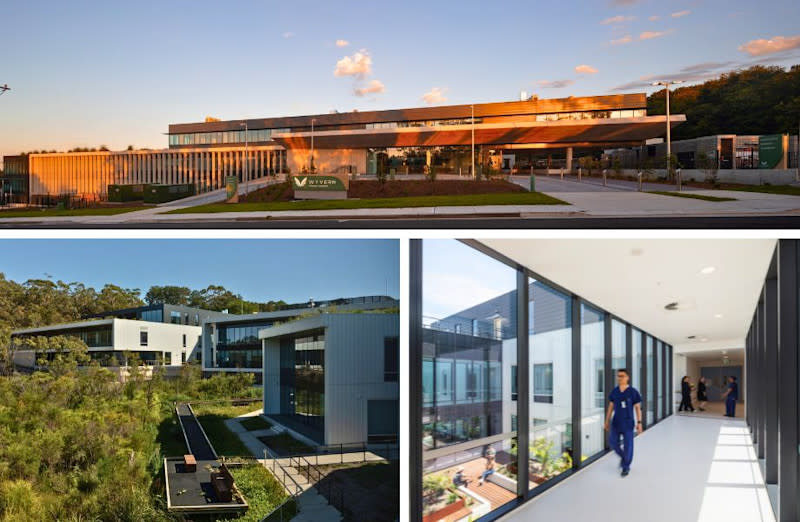
Excellence in Industry Leadership
And the winner is
Coronation Cares
Nominated by Coronation Property
Coronation Cares is transforming how residential precincts deliver social impact—embedding wellbeing, support, and equity into every development.
Operating across three pillars—Realising Potential, Homes for Everyone, and Inclusive Representation—initiatives include partnerships with Beyond Blue, crisis housing for women, and homeownership pathways for low-income residents.
Judges praised the program’s depth and delivery, from mental health coaching to construction job training—positioning Coronation as a leader in people-first development with measurable community outcomes.
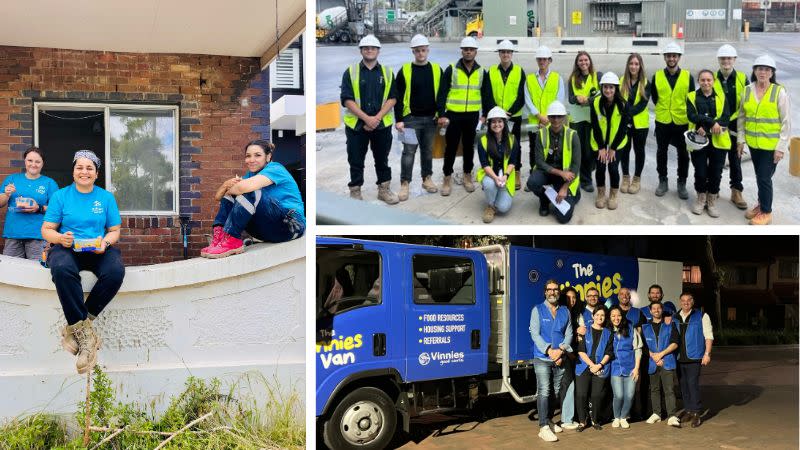
Excellence in Design Innovation
And the winner is
Glasshouse
Nominated by Spyre
Glasshouse by Spyre redefines beachfront living through an uncompromising design vision that fuses sculptural form, structural ingenuity, and artisanal detail.
Anchored by a pioneering curved-glass facade—engineered to eliminate visual joins and resist structural deflection—Glasshouse showcases how architecture can blur boundaries between nature and built form.
The judges commended Glasshouse’s exceptional design innovation, noting its integration of commercial-grade materials into a boutique residential context, and its elevation of luxury design to new artistic and technical heights.
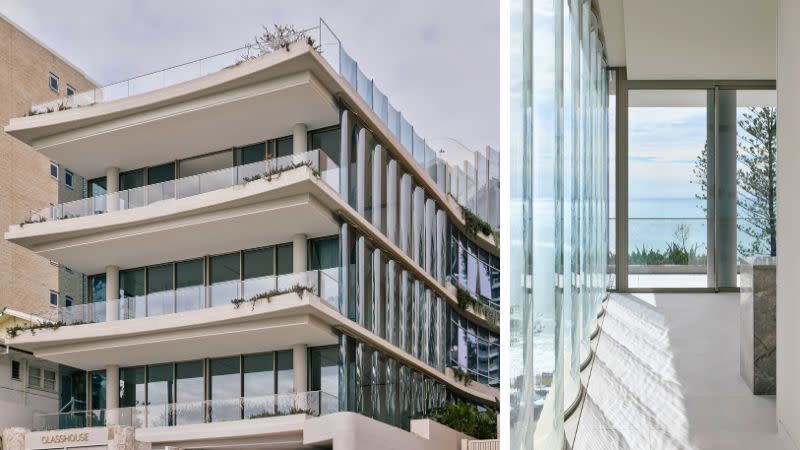
Excellence in Community Engagement
And the winner is
Sydney Metro Martin Place Integrated Station Development (SMMPISD)
Nominated by Macquarie Group
The Sydney Metro Martin Place Integrated Station Development by Macquarie Group sets a new standard for community-led placemaking in transport and commercial precincts.
Guided by a human-centred design approach, the project drew on extensive consultation with young people, local Aboriginal communities, not-for-profits, and everyday users to shape every aspect of the precinct—from public art and green spaces to safety, inclusion, and cultural identity.
The judges commended the depth and diversity of engagement, the project’s collaborative cultural strategy, and its lasting social legacy—transforming Martin Place from a transactional financial district into a connected, inclusive civic destination for all.
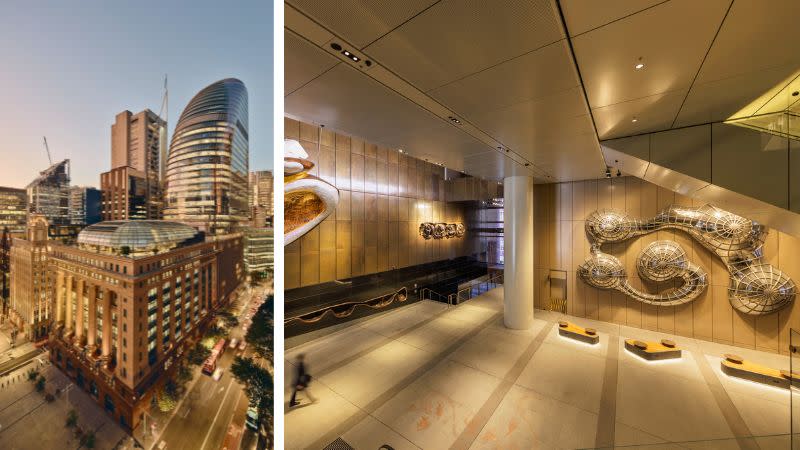
Excellence in Commercial Innovation
And the winner is
Parc
Nominated by Sammut Group
Parc by Sammut Group is a bold example of commercial innovation in a suburban setting—transforming a long-vacant residential site into a high-performing, mixed-use precinct.
As Cronulla’s first new office building in ore than 20 years, Parc delivers premium workspaces, a two-level hospitality hub, and new public amenities, all seamlessly connected to Monro Park and the train station.
The judges commended the project’s planning ambition, architectural clarity, and commercial foresight—establishing a new standard for place-led, precinct-scale development beyond the CBD.
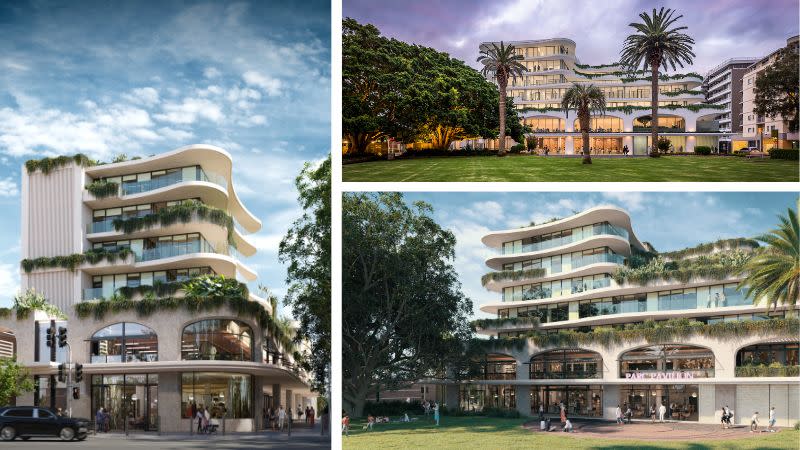
Excellence in Construction Innovation
And the winner is
Australian Pile Croppers
Nominated by Australian Pile Croppers
Australian Pile Croppers is transforming one of construction’s riskiest and most time-intensive processes—pile breakback—through cutting-edge hydraulic cropping technology.
By eliminating manual interaction, dust, vibration and noise, the solution redefines safety, speed, and environmental performance onsite. A single machine can reduce a 1200mm pile in just minutes, leveraging existing equipment and dramatically accelerating project timelines.
The judges commended the innovation for its practical application, industry scalability, and its potential to rewrite national best practices in safe, efficient pile reduction.
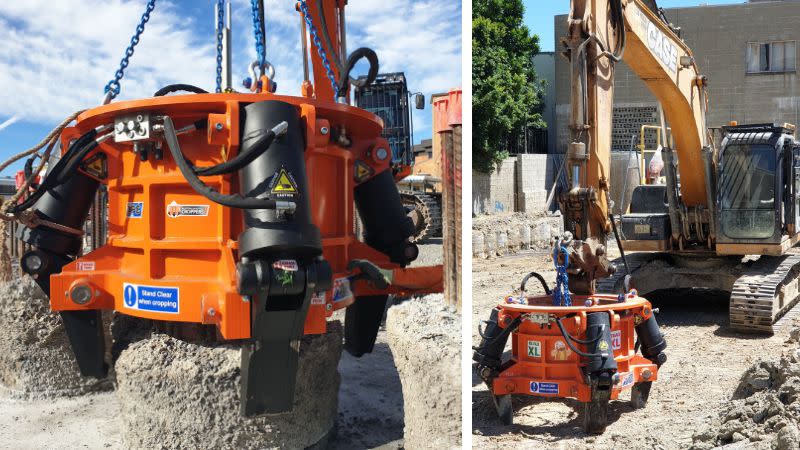
Best New PropTech
And the winner is
OPEX
Nominated by OPEX Contracts
OPEX is a purpose-built digital platform streamlining contract exchange for real estate projects—connecting developers, lawyers, agents, and buyers in one integrated system.
With features such as large-scale e-signing, real-time tracking, PEXA integration, and smart workflows, it replaces slow, manual processes with speed, transparency, and control.
Judges praised OPEX’s innovation, security, and user-led design—marking it as a game-changer for property transactions across Australia’s development sector.
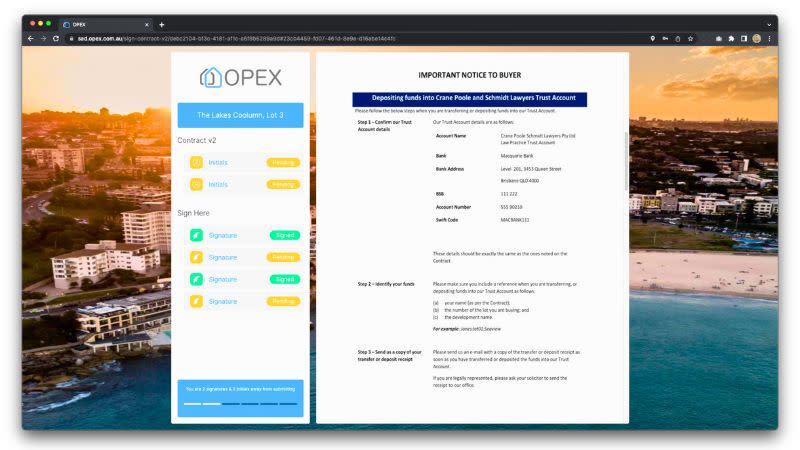
Excellence in Marketing Innovation
And the winner is
La Strada, Potts Point
Nominated by ARC Property
La Strada nominated by ARC Property is a boutique apartment project in Potts Point that reimagined off-the-plan marketing through heritage storytelling and placemaking.
Honouring the legacy of the iconic La Strada Ristorante, the campaign combined editorial-style content, local partnerships, and immersive experiences.
The judges commended the project’s originality, emotional resonance, and commercial cut-through—achieving a complete residential sell-out within three months.
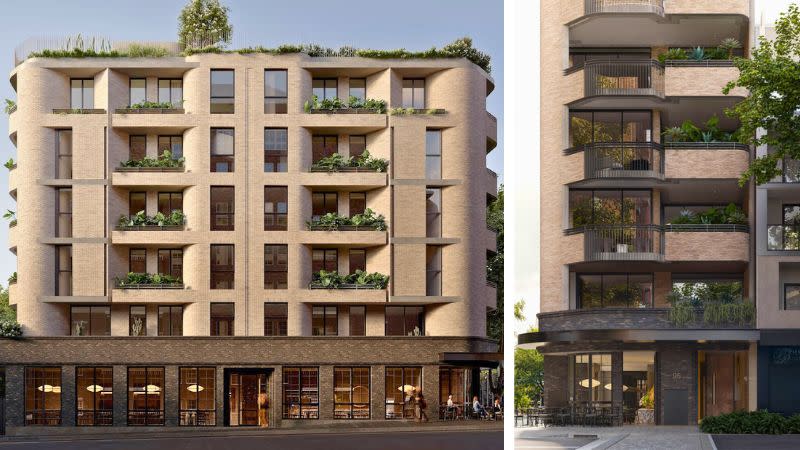
Excellence in Project Marketing
And the winner is
Highforest
Nominated by Mirvac
Highforest by Mirvac redefined project marketing through an education-led campaign centred on its forest-side Discovery Centre.
Visitors engaged with the site’s history, Dharug culture and sustainability goals—supported by hyper-real imagery and immersive storytelling.
The judges applauded the campaign’s originality and impact, achieving a full house sell-out and strong apartment sales on launch weekend while shifting market perceptions of West Pennant Hills.
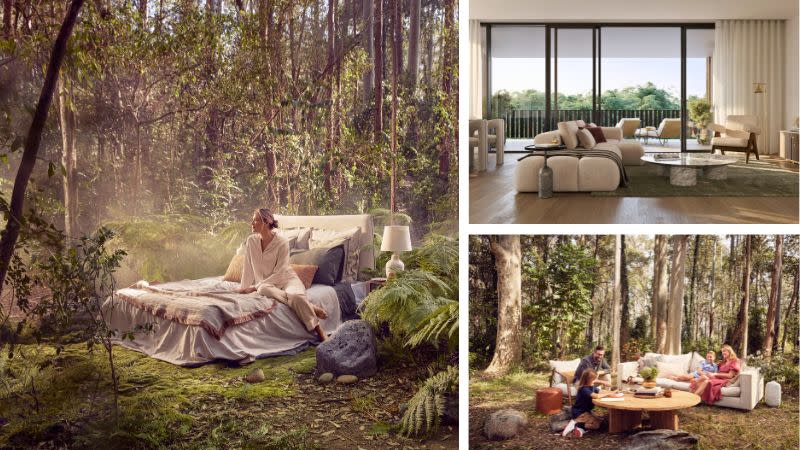
The Urban Developer & Urban Land Institute (ULI) Award for Decarbonisation in Real Estate
And the winner is
Sydney Metro Martin Place Integrated Station Development (SMMPISD)
Nominated by Macquarie Group
The Sydney Metro Martin Place Integrated Station Development by Macquarie Group is a national exemplar in low-carbon real estate.
The judges praised its full electrification, 100 per cent renewable operations and innovative reuse of materials—resulting in 6 Star Green Star and 5.5 Star NABERS ratings.
From zero-carbon construction to net-zero daily operations, it sets a new standard for sustainable city-building in Australia.
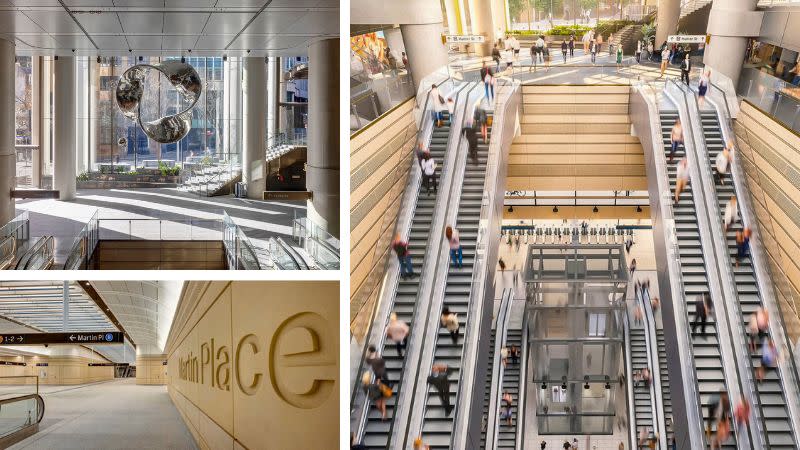
Development of the Year - Social Infrastructure
And the winner is
Habilis Housing
Nominated by Habilis Housing
Habilis Housing is a supported living project in Sydney’s Inner West for people with severe mental illness.
Delivered on a repurposed industrial site, it includes 20 self-contained apartments, onsite clinical care, and landscaped communal spaces that balance privacy, support, and community.
Judges praised its sensitive design and adherence to Specialist Disability Accommodation standards.
Developed by a not-for-profit partnership, Habilis offers a replicable model of social infrastructure that addresses complex housing and health needs.
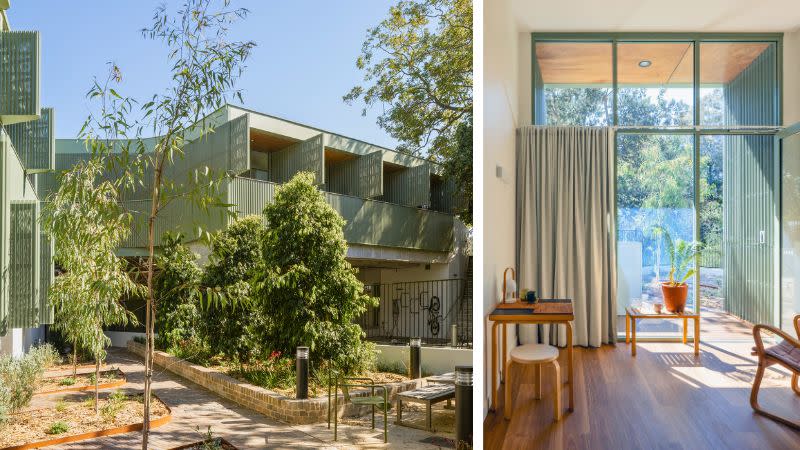
Development of the Year - Retirement, Aged Care and Seniors Living
And the winner is
Uniting Leichhardt
Nominated by Uniting NSW.ACT
Uniting Leichhardt presents a contemporary model for seniors’ living in Sydney’s inner west, combining affordable and independent housing with purpose-built community spaces.
Spread across two sites, it includes modern apartments, a seniors gym, rooftop gardens, and integrated smart technology to support ageing in place.
Judges highlighted its strong uptake and socially inclusive approach—responding to the housing and wellbeing needs of an ageing urban population.
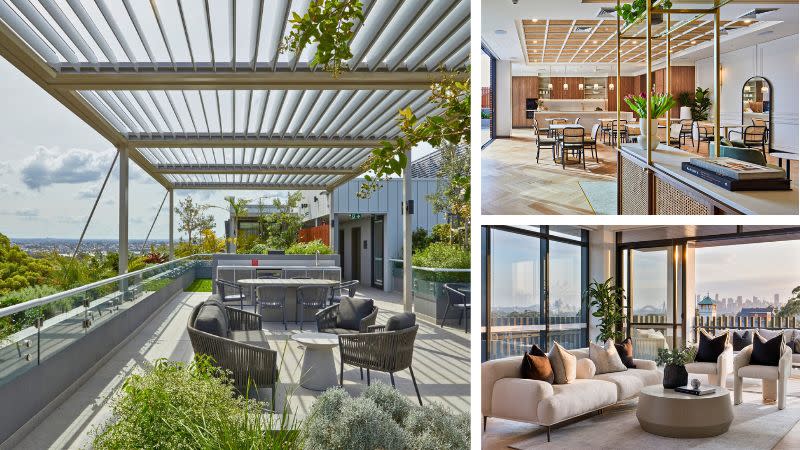
Development of the Year - Mixed-Use
And the winner is
Sydney Metro Martin Place Integrated Station Development (SMMPISD)
Nominated by Macquarie Group
The Sydney Metro Martin Place precinct is one of Australia’s most ambitious mixed-use developments in Australia.
Delivered by Macquarie Group with the NSW Government, it integrates two premium commercial towers, a state-of-the-art metro station, retail, and public connections—all above live rail lines and heritage buildings.
Judges commended its scale, engineering complexity, and civic contribution—demonstrating what’s possible in vertically integrated city-making.
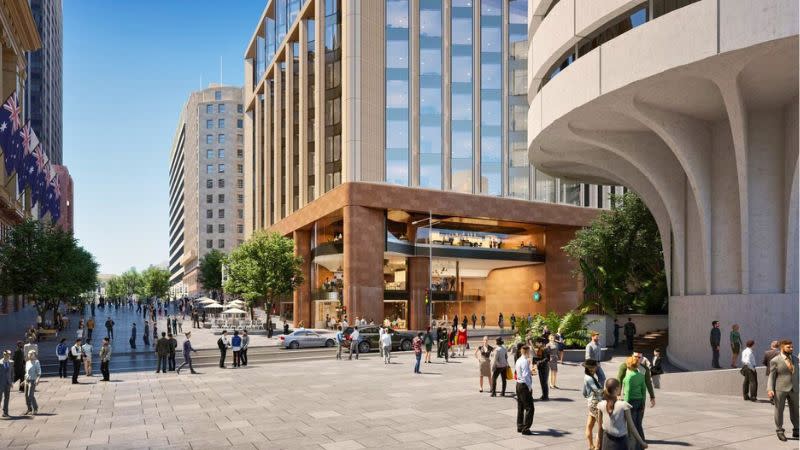
Development of the Year - Commercial
And the winner is
Bourke & Bowden
Nominated by Hickory, Time & Place and Qualitas
Bourke & Bowden is a 16,500sq m A-grade commercial precinct in Alexandria, setting a new benchmark for workplace performance in Sydney’s inner south.
Spanning three levels, it includes a light-filled central atrium, a 1000sq m landscaped courtyard, and a rooftop terrace designed to enhance connection and wellbeing.
Judges highlighted its 5 Star Green Star rating, 360.8kW solar array, luxury wellness amenities and integrated tenant fitouts as a standout example of sustainable, user-focused design.
From structure to experience, Bourke & Bowden reimagines what a contemporary commercial precinct can be.
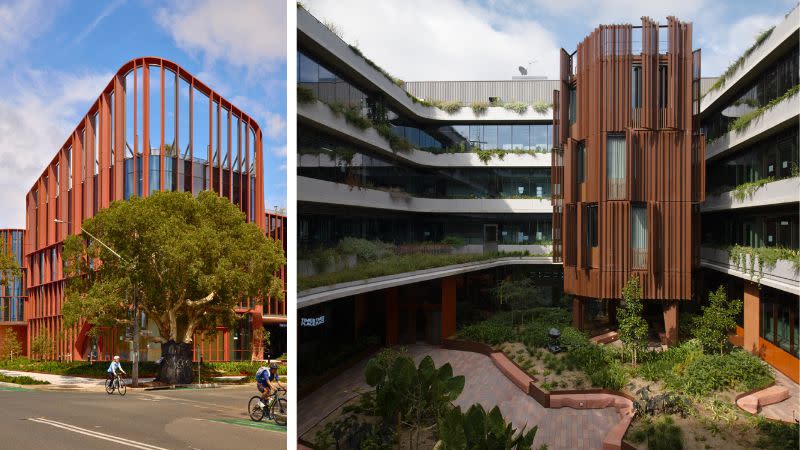
Development of the Year - Industrial
And the winner is
Altona Circuit
Nominated by Urban Logistics Co.
Altona Circuit reimagines a 1990s distribution centre in Melbourne’s inner west as a state-of-the-art industrial estate spanning over 50,000 square metres.
Delivered by Urban Logistics Co. for Wentworth Capital and BlackRock, the project comprises seven premium-grade tenancies with CLT office pods, EV charging, smart building systems and flexible layouts.
Judges praised its strategic repositioning, tenant-focused design and delivery quality—demonstrating a new benchmark in adaptive industrial development.
Altona Circuit shows how next-generation logistics assets can be created from yesterday’s infrastructure.
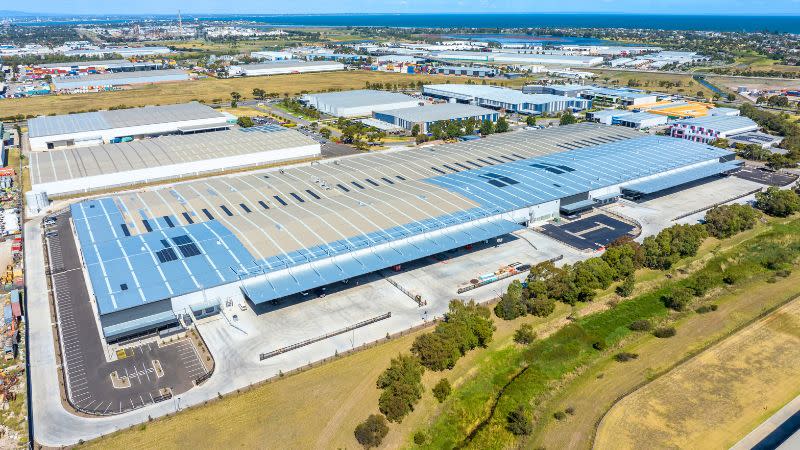
Development of the Year - Urban Regeneration
And the winner is
Nicholas Street Precinct
Nominated by Ipswich City Council
Nicholas Street Precinct has reshaped Ipswich’s CBD into a civic and cultural destination.
Led by Ipswich City Council, the project includes 21,000sq m of office space—12,500sq m for Council—plus a children’s library, Tulmur Place, retail, cinemas and public gardens.
Judges praised its adaptive reuse of a former Woolworths and carpark, and sustainable design features like solar panels, recycled materials and water-sensitive landscaping—delivering long-term social and economic uplift for the community.
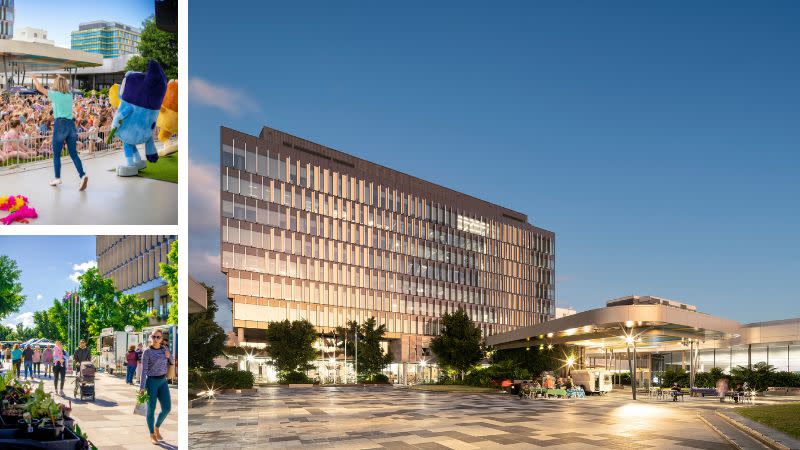
Development of the Year - New Communities
And the winner is
Norman Estates
Nominated by Sekisui House Australia
Norman Estates is a 17ha masterplanned community in Sydney’s south-west, featuring 190 prefabricated SHAWOOD homes by Sekisui House.
Created in collaboration with Greg Norman, the project includes a 6ha green corridor, a residents-only clubhouse, pool and gym, and homes designed for passive cooling and energy efficiency.
Judges noted the preservation of Indigenous scar trees and heritage landscape elements—highlighting its strong environmental and cultural response, and setting a new standard for lifestyle-focused suburban development.
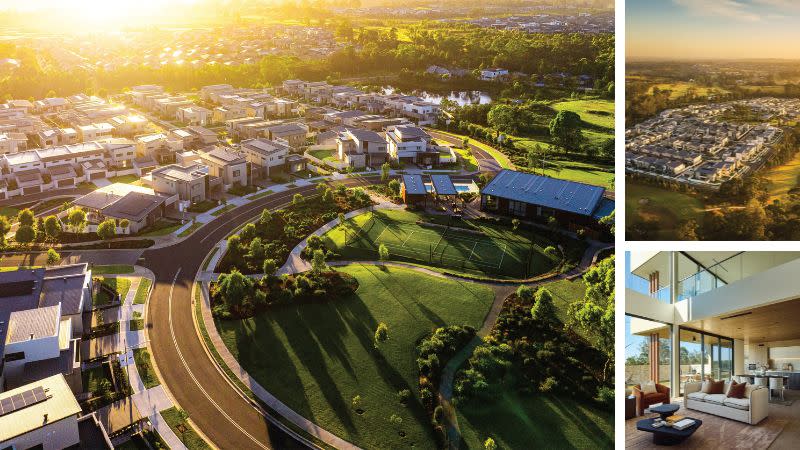
Development of the Year - Retail
And the winner is
Woolworths Leppington Village
Nominated by Woolworths Group
Woolworths Leppington Village is a $40-million neighbourhood centre delivered by Fabcot in Sydney’s south-west growth corridor—transforming a 2.5ha former agricultural site into a vibrant local hub.
Anchored by a full-line Woolworths and BWS, the project includes 16 specialty tenancies, medical and allied health, gym, and alfresco dining. A 290-space basement carpark supports convenience, while landscaped plazas and integrated Indigenous artworks enrich the public realm.
Judges praised its efficient delivery, 100 per cent lease-up at launch, and ability to meet surging demand from a fast-growing catchment.
Leppington Village is now a key catalyst in the precinct’s broader urban transformation.
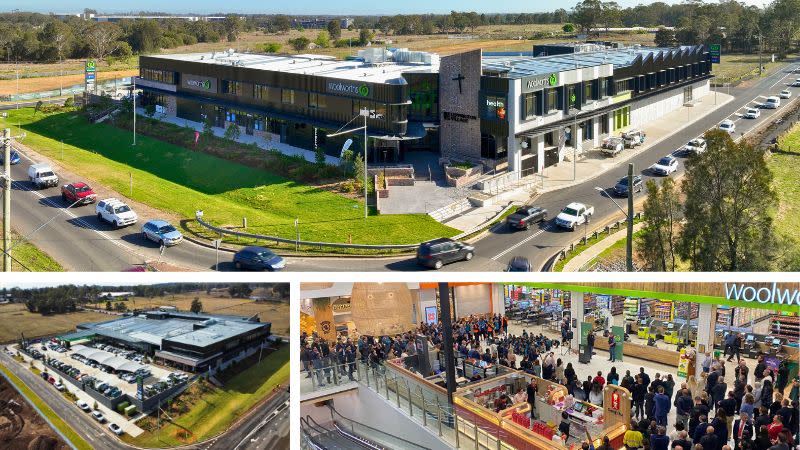
Development of the Year - Hotels and Accommodation
And the winner is
Melbourne Place
Nominated by Kennedy Nolan
Melbourne Place is a 16-storey independent hotel on Russell Street designed and delivered by Kennedy Nolan. Developed with Merricks Capital, the project includes 191 rooms, three distinct hospitality venues, and a rooftop bar—crafted through a complete, integrated design approach.
Judges praised its urban character, intricate facade, and richly detailed interiors, noting the building’s cultural authenticity and civic contribution.
With its carbon-neutral operation, locally crafted interiors, and immersive laneway activation, Melbourne Place offers an experience that captures the spirit and sophistication of the city.
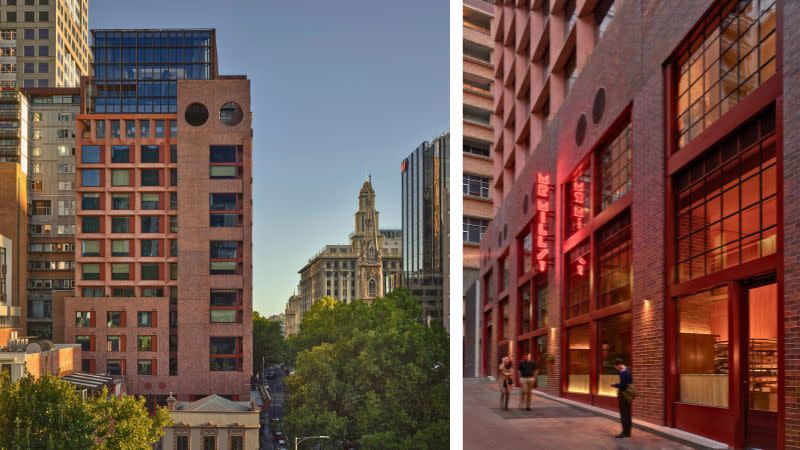
Development of the Year - Build-to-Rent and PBSA
And the winner is
LIV Aston
Nominated by Mirvac
LIV Aston by Mirvac has redefined build-to-rent living in Melbourne, transforming a 2753sq m Docklands site into a vertical community of 474 premium apartments across 32 storeys.
With co-working lounges, a pet park, podcast studio and rooftop terraces, it offers 2700sq m of curated amenity, seamlessly integrated with retail and commercial uses.
Judges praised LIV Aston’s market-leading delivery, early leasing success, and renter-centric approach to community, flexibility, and sustainability.
As part of a long-term precinct vision, it sets a new benchmark for purpose-built rental living in Australia.
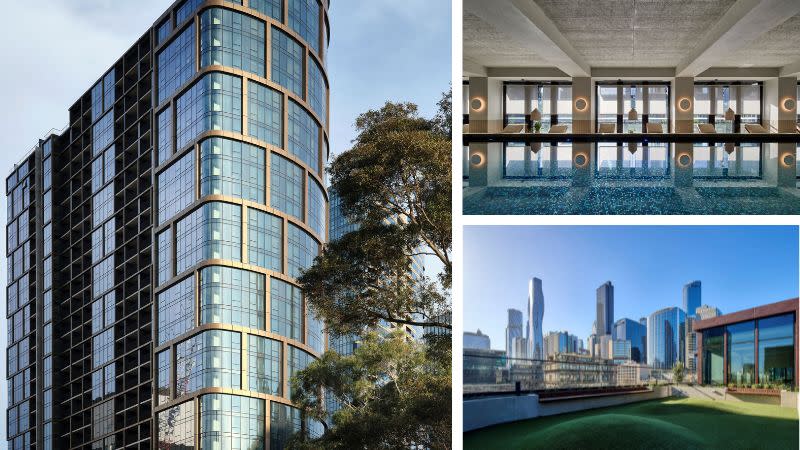
Development of the Year - Small-Scale Residential (1-3)
And the winner is
DUNE by GRAYA
Nominated by Graya Developments
DUNE by Graya is a sculptural, four-level residence perched on a compact hillside site at Burleigh Heads, reimagining the single home as a feat of design and engineering.
Spanning 950sq m, the home includes five bedrooms, eight-car basement parking, and a 17m suspended pool with rooftop entertaining for more than 200 guests.
The judges praised its site-sensitive construction, market-defining performance and bold architectural vision.
DUNE sets a new bar for ambition, liveability and design in a single-home development.
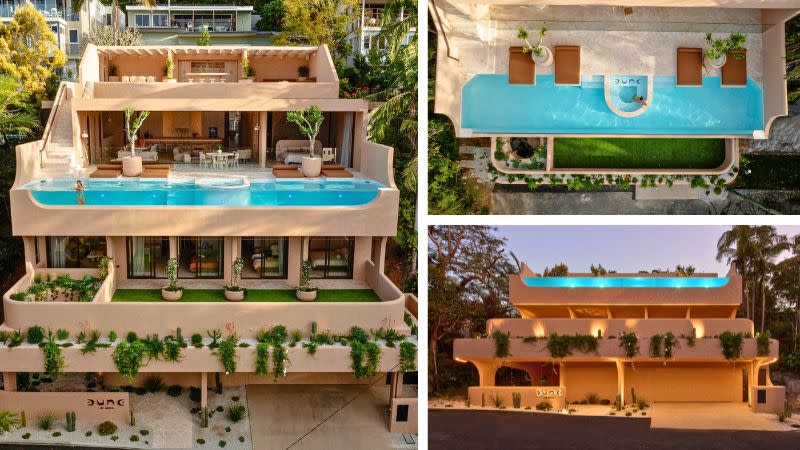
Development of the Year - Small-Scale Residential (4-10)
And the winner is
Florence by Mosaic
Nominated by Mosaic Property Group
Florence by Mosaic is a boutique collection of nine full-floor homes on a tightly constrained Burleigh Heads beachfront site.
Designed by Bureau Proberts, the project shares access and services with a neighbouring Mosaic development—minimising impact and removing driveways from The Esplanade.
Judges praised its refined execution, carbon-neutral materials, and passive design. Completed on time with all residences sold, Florence sets a thoughtful precedent for low-scale luxury on the Gold Coast coast.
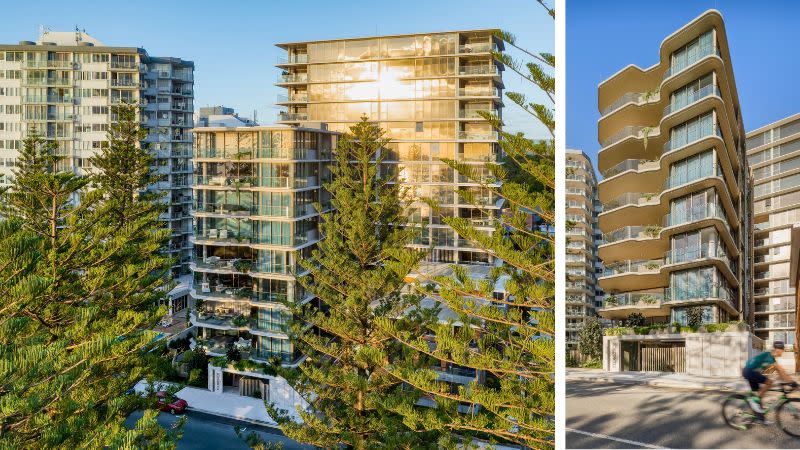
Development of the Year - Small-Scale Residential (11- 20+)
And the winner is
82 Westgarth
Nominated by Jarrah
82 Westgarth is an 18-home residential project at Fitzroy, delivering premium apartments and townhouses within a finely crafted, five-storey building.
Developed by Jarrah and designed by Walter&Walter, the project combines a strong architectural response with a net-zero operational footprint—featuring open-air corridors, real brick facades, and native landscaping across a compact 611sq m site.
The judges commended its design resolution, construction ingenuity, and market performance, noting its high sustainability credentials and deep community engagement throughout the planning process.
Thoughtfully scaled and contextually grounded, 82 Westgarth sets a high standard for boutique inner-city living.
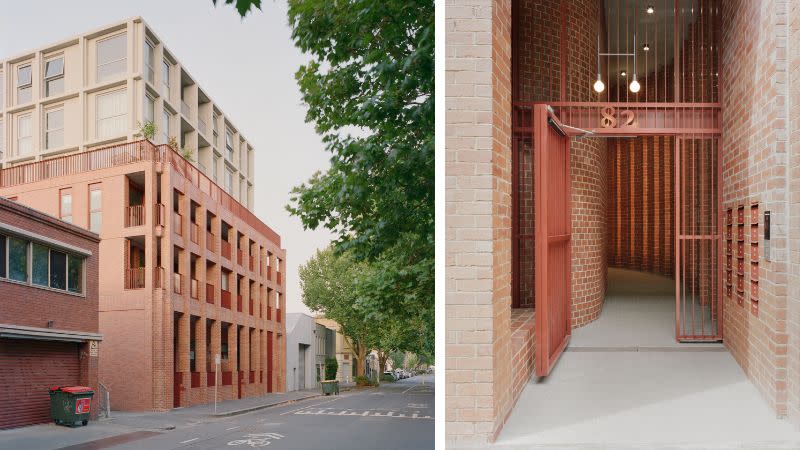
Development of the Year - Medium-Density Residential (Under 40)
And the winner is
Reunion Place
Nominated by Noetic Places
Reunion Place is a 23-home medium-density project at Hampton, built around the restored 1905 Edwardian villa, Pontac, and spread across two lowrise buildings on a 2550sq m site.
Developed by Noetic Places and designed by Fender Katsalidis, the project comprises a mix of two and three-bedroom apartments and penthouses, crafted with Krause brick, timber, and extensive coastal landscaping by Eckersley Garden Architecture.
Judges praised its integration of heritage, community engagement, and passive design—demonstrating how considered architecture can enhance neighbourhood character and resident experience.
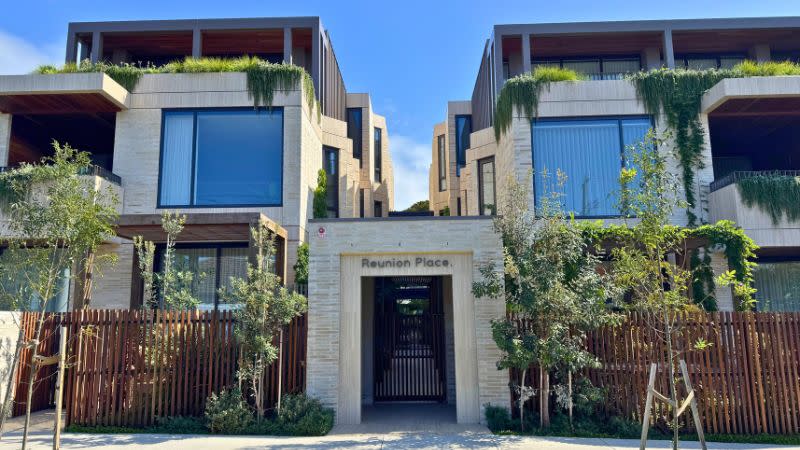
Development of the Year - Medium-Density Residential (40-plus)
And the winner is
PAMA
Nominated by Holm Developments and DeMartini Fletcher
Pama is a five-storey, 47-home residential project at Casuarina, NSW developed by Holm and DeMartini Fletcher under the Casuarina Concept Plan. It introduces medium-density living to a suburb traditionally defined by detached homes, with a mix of large-format 2, 3 and 4-bedroom apartments averaging up to 274 square metres.
Set across a 4000sq m site, it features a 20m heated pool, barbecue pavilion, surfboard storage, vintage bike share, and a central landscaped spine designed for coastal living.
Judges praised Pama’s planning ambition, strong sales, and high-quality execution—offering a replicable model for lifestyle-focused density in regional coastal towns.
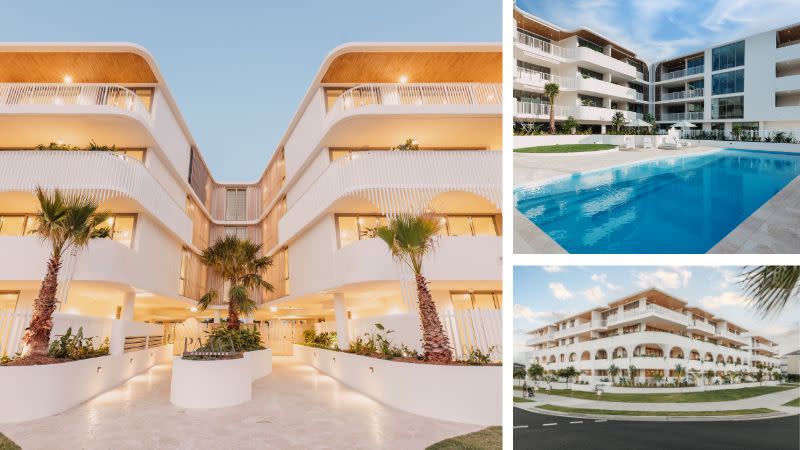
Development of the Year - High-Density Residential (under 200)
And the winner is
Hampton Quarter
Nominated by EPC Pacific and Pace Developments
Hampton Quarter is a 177-home bayside precinct in Melbourne’s Hampton, featuring four sculptural buildings designed by ARM and JAM Architects.
It includes 159 private homes and 18 affordable Homes Victoria apartments, complemented by rooftop gardens, a lap pool, and coastal-inspired interiors by Carr.
Integrated with Hampton Station, the development prioritises lifestyle and liveability, achieving a 7.8 Star NaTHERS energy rating and delivering new public spaces and transport upgrades.
Judges praised its inclusive housing mix, design clarity and delivery of high-quality residential living with strong community value.
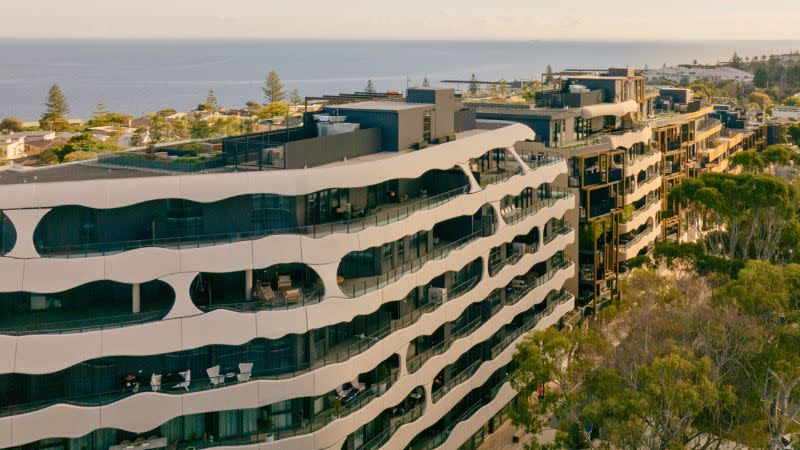
Development of the Year - High-Density Residential (200+)
And the winner is
AURA by Aqualand
Nominated by Aqualand
AURA by Aqualand is a landmark 28-storey residential tower in North Sydney, developed and delivered in-house by Aqualand.
The $1-billion project comprises 386 luxury apartments, a curated two-level hospitality precinct, rooftop amenity and seamless integration with the Victoria Cross Metro.
Designed by Woods Bagot with interiors by Richards Stanisich, the building’s curved form and premium detailing reflect a commitment to quality and innovation.
Judges commended Aqualand’s holistic delivery, strong sales performance and contribution to North Sydney’s transformation.
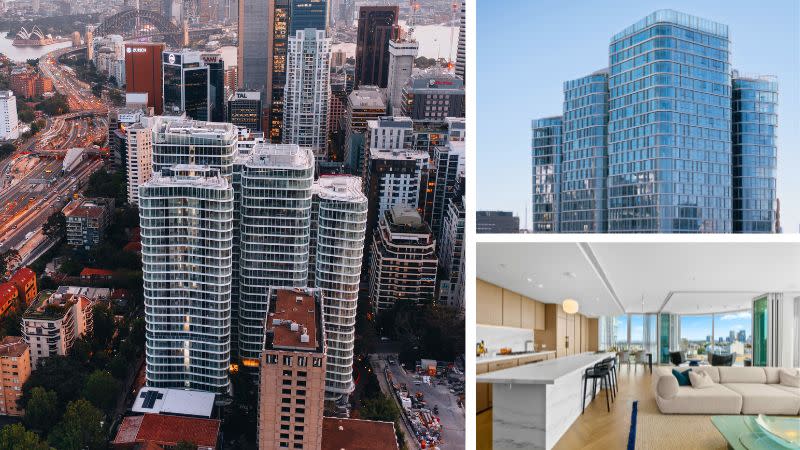
To view all of the finalists, visit our dedicated The Urban Developer Awards Website here.
Thank you to our award sponsors
Major Partner: Trilogy Funds
Trophy Partner: UAP
Centrepiece Partner: ASKO
Award Sponsors: Fienza | Trilogy | Clutch | Get Parked | Grifco | DEMEX | MOTIV | Opticomm | Patona | Kapitol | MA Financial | Gallery Group | CVS Lane | Furn-niche | Salto | Zagga | Coposit | UAP | ASKO | Urban Land Institute (ULI)
















